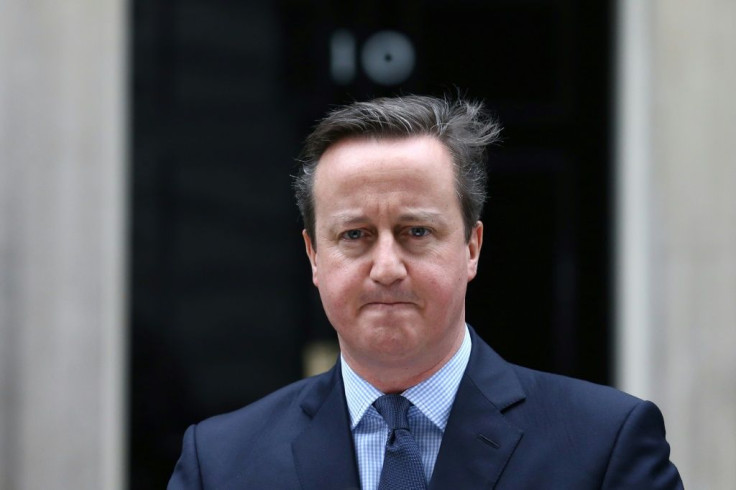Sleaze Scandal Infects UK Politics Amid Covid Spending Spree
A drip-feed of revelations over the collapse of an opaque financial firm is raising serious questions about cosy ties between UK politicians, civil servants and big business as the government spends lavishly on fighting the coronavirus pandemic.
Greensill Capital risks turning into the worst Westminster scandal since 2009, when it emerged that many MPs had been fiddling their expenses, fuelling public disgust with the political class in the years leading up to Britain's 2016 Brexit referendum.
"Every day there's further evidence of the sleaze that's now at the heart of this Conservative government," opposition Labour party leader Keir Starmer told Prime Minister Boris Johnson in parliament on Wednesday.
David Cameron, the prime minister who made a catastrophic bet that Britain would opt to stay in the European Union, stepped down after the 2016 referendum and went on to become a paid advisor to Greensill, amassing share options potentially worth millions.
Those options are now worthless after Greensill imploded last month, threatening thousands of jobs at companies that relied on its supply chain financing, including at the steel empire of Indian-British billionaire Sanjeev Gupta.
Johnson this week launched an independent inquiry into Cameron's private and undeclared lobbying of senior officials including finance minister Rishi Sunak, prior to the collapse.

He told Starmer that "I indeed share the widespread concern about some of the stuff that we're reading at the moment".
The row has ruptured what was meant to be a week-long political truce during mourning for Queen Elizabeth II's husband, Prince Philip, and fuelled wider concerns about trust in government when state intervention is running at wartime levels during the pandemic.
Dominic Grieve, Cameron's former attorney general, said it was "very corrosive" for public trust to see former ministers spinning through the post-politics revolving door into public relations and lobbying.
"I think the public are increasingly cynical about the way politicians behave, about allegations of corruption and cronyism in government, and about a perception that there are lots of private channels that are being exploited," he told Channel 4 News.
Private channels, including one leveraged by a pub owner friend of Health Secretary Matt Hancock, were used profitably by many companies for no-bid contracts offered by the government to plug equipment shortages when the pandemic struck last year.

In total, the government has budgeted more than ?400 billion ($550 billion) to deal with the health crisis across the board.
The government has insisted it had to act fast when the pandemic took grip, and says there was no impropriety. But the Greensill affair appears to be of a different order, embroiling not just Cameron but top bureaucrats.
Newly revealed official correspondence shows that one, who was in charge of government procurement, was advising Greensill even before he quit the civil service.
Another, who cleared that appointment, was himself working for a major brewing company alongside his day job.
The revelations have made a mockery of government rules designed to prevent conflicts of interest. Cameron says he will cooperate in the government inquiry, after conceding he should have gone through formal channels.
But Labour is pressing for a full parliamentary inquiry, with legal powers, as it bids to maximise the government's discomfort ahead of UK-wide local elections on May 6.
The polls mark Johnson's first electoral test since the pandemic hit and since Brexit took full effect at the start of this year.
Polls suggest his Conservatives are sitting comfortably on the back of a successful vaccination campaign, which has helped the public overlook one of the world's worst death tolls from Covid-19.
But Labour is hoping the Greensill affair will cut through, and reinforce its portrayal of a mendacious leader who has often turned a blind eye to allegations of ministerial wrongdoing in his cabinet of Brexit diehards.
The affair has yet to implicate the prime minister's office itself. And Hannah White, deputy director of the Institute for Government, noted that Johnson has a long history of riding out scandal.
"But there is absolutely the risk of public trust being eroded, at a time of crisis, if there are never any consequences," she told AFP.
"And if people are starting to look more for personality than competence in the role of PM, even when we are experiencing a global pandemic, I don't know how you come back from that."
© Copyright AFP 2024. All rights reserved.





















